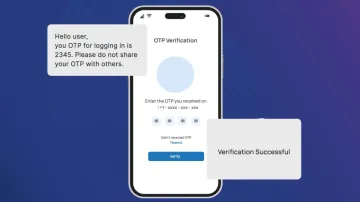With the rise of the internet and smartphones, various dangers have emerged alongside the conveniences these technologies offer. While smartphones have simplified many tasks, they've also provided scammers and cyber criminals with new avenues to deceive people. In light of this, the Telecom Regulatory Authority of India (TRAI) has implemented several measures recently to safeguard individuals against scams and online fraud.
One significant step TRAI has taken is to instruct telecom companies to enforce message traceability. This major decision was first announced in August, focusing on commercial messages and OTPs (One-Time Passwords). Initially, telecom companies were given a deadline of October 31 to enact these traceability measures, but this deadline was extended to November 31 following requests from major players like Jio, Airtel, VI, and BSNL. As the new deadline approaches, these companies must comply with TRAI's rules on tracking commercial and OTP messages.
It's important to note that if Jio, Airtel, VI, and BSNL start implementing these traceability measures on December 1, OTP messages may experience delays. Consequently, if you are engaged in activities like banking or booking reservations, you could find yourself waiting longer for your OTP.
TRAI's initiative stems from the realisation that scammers often exploit fake OTP messages to gain access to individuals' devices, resulting in significant financial losses. By enforcing this rule across all telecom companies, TRAI aims to protect consumers more effectively.
In other news, Beginning January 1, 2025, a new rule will be implemented that will affect customers of Jio, Airtel, Vi, and BSNL. These regulations are aimed at accelerating the development of 5G infrastructure across the country.
The government has recently introduced additional regulations under the Telecom Act, requiring all states to comply with these changes. This new guideline, referred to as the Right of Way (RoW), establishes standardised costs for telecom companies when deploying infrastructure nationwide. Currently, RoW rules differ from state to state, leading to varied charges for permissions and the establishment of infrastructure across the country.
ALSO READ: Samsung Galaxy S23 256GB variant gets another massive price drop by 54 percent

